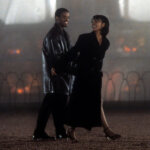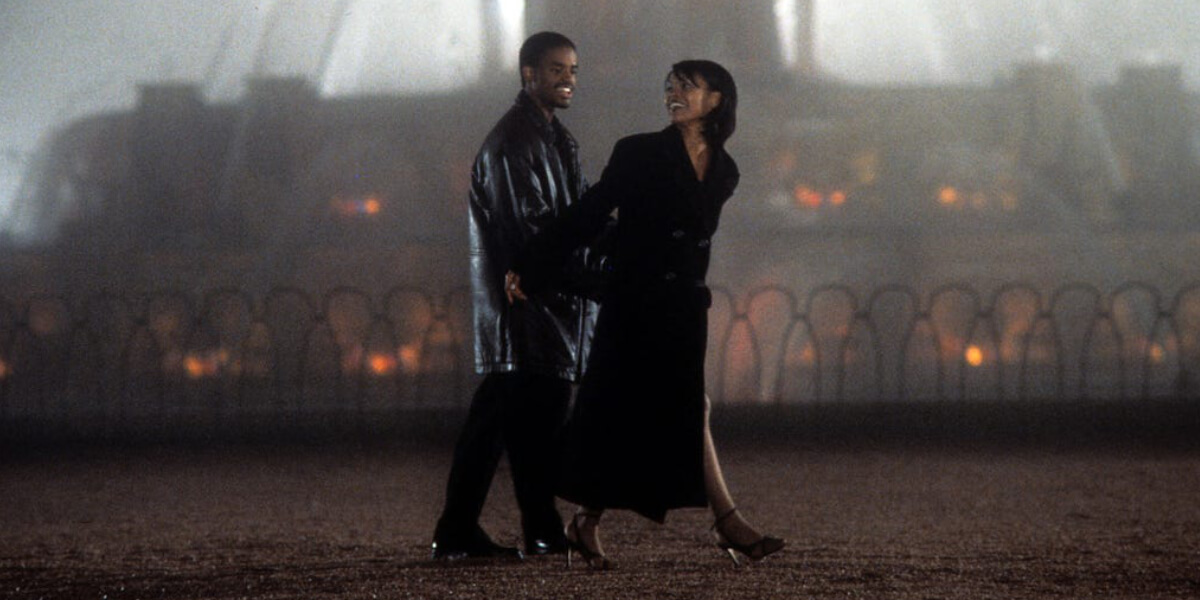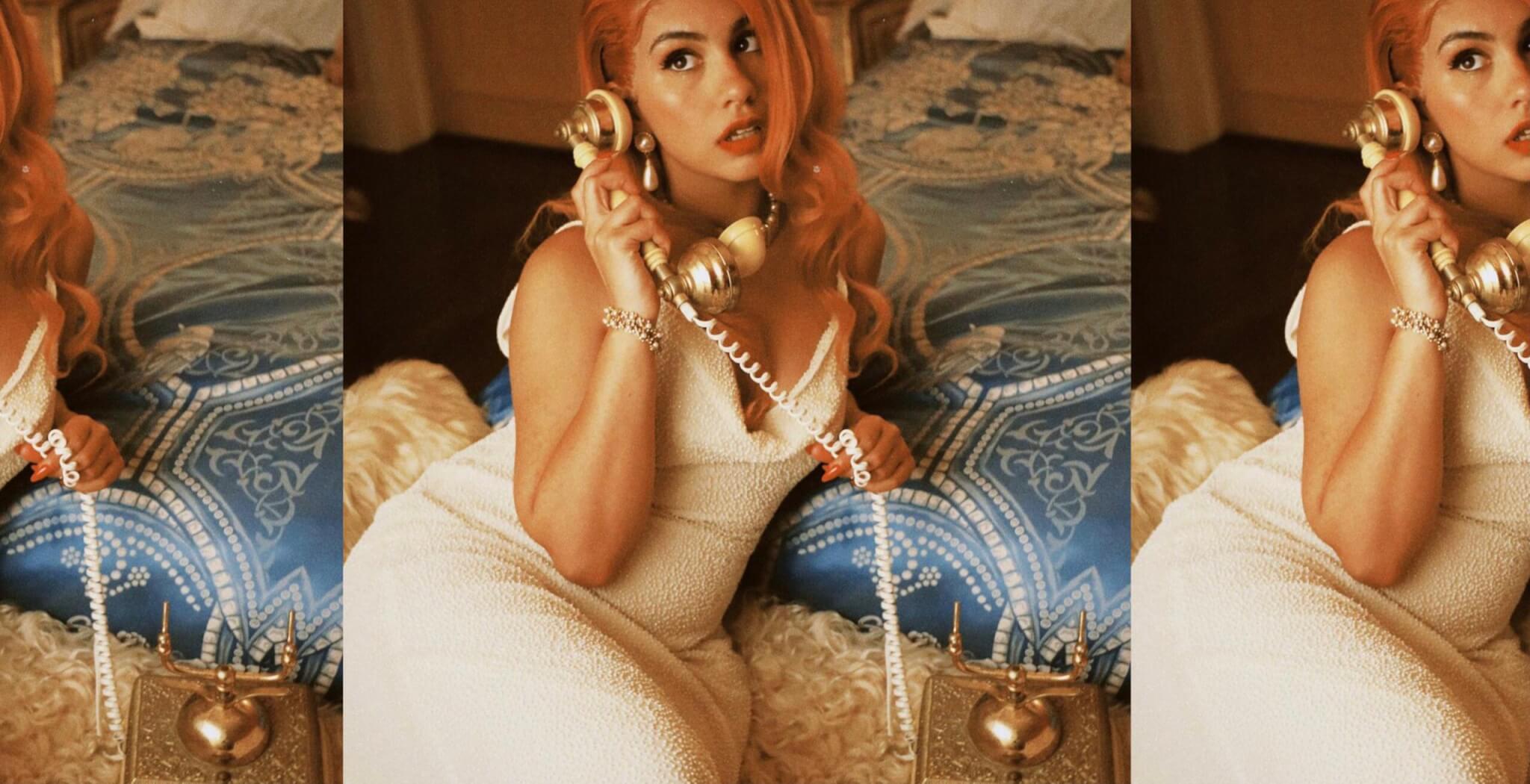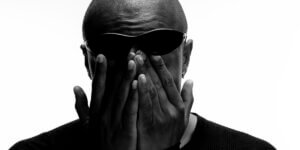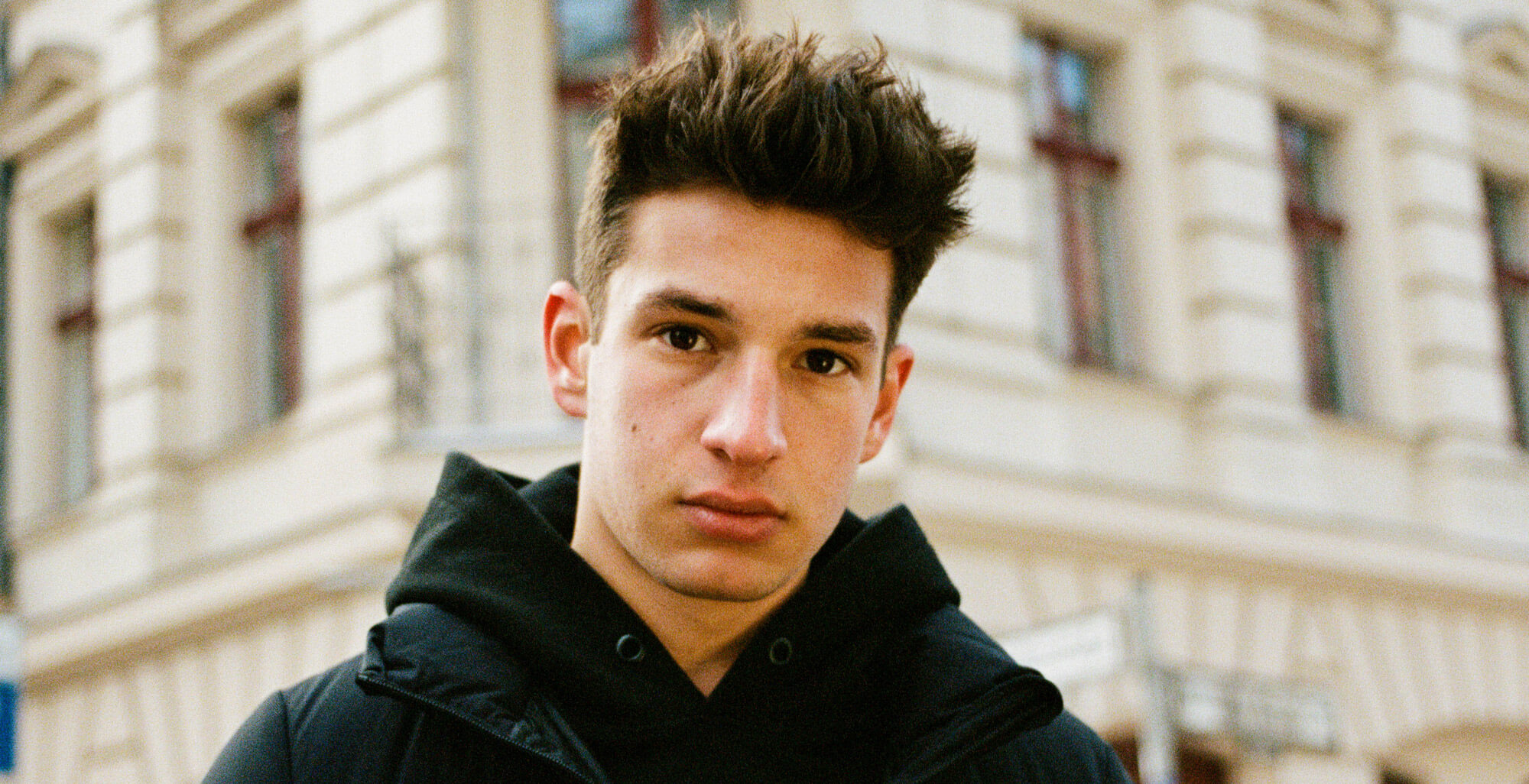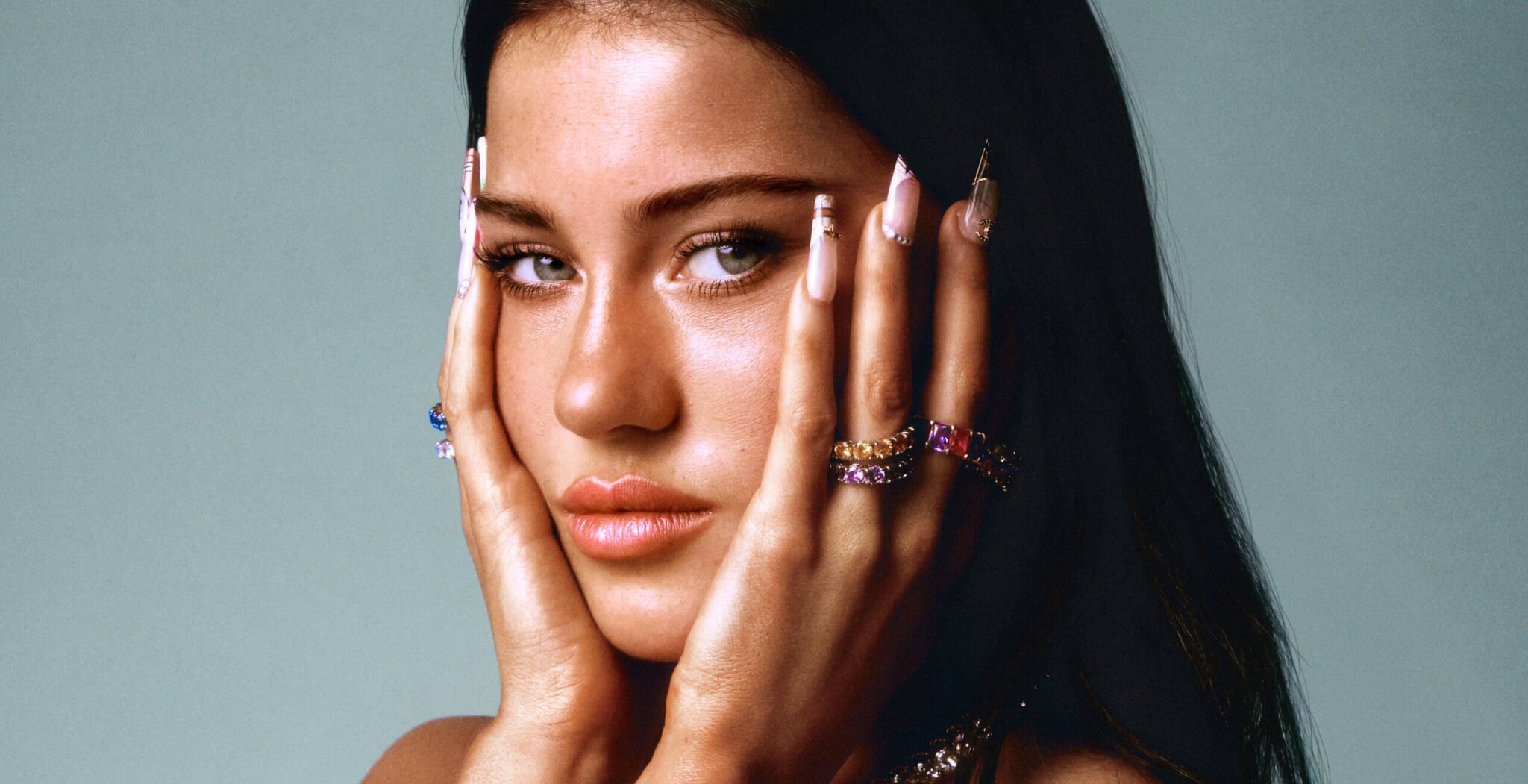For a community that has had to fight for representation in front and behind the camera, Black romantic comedies paved the way in dismantling harmful stereotypes, introducing new narratives, and highlighting Black joy and communion. While they started with stories highlighting the struggles of Black couples during and after the Civil Rights Movement, Black rom-coms reached their peak in the 90s and early 2000s with the rise in education and economic growth among Black families. Stories showing successful Black business owners, college meet-cutes, or lavish marriages show that, despite adversity, Black love doesn’t have to come with pain and turbulence. We’ve compiled a list of Black rom-coms from the 90s to today that will leave you with a warm feeling and a smile on your face.
The Watermelon Woman by Cheryl Dunye (1996)
A true landmark of new queer cinema, Cheryl Dunye’s The Watermelon Woman delivers a vibrant representation of Black lesbian identity by a Black lesbian filmmaker. Balancing fiction and documentary, romantic comedy, and a radical exploration of history and erasure, this film is simply a must-see. Dunye stars as herself, a video-store clerk and aspiring director who embarks on a journey to uncover the forgotten legacy of a fictional Black lesbian actress known only as “The Watermelon Woman” – all while navigating a new relationship which seems to mirror the story that she’s researching. Ironically, after its 1996 release, The Watermelon Woman spent many years in obscurity before slowly entering the canon.
In an interview on Slant, Marshall Shaffer talks to Dunye about the legacy of her film and how its Dunyementary style feels like a precursor to today’s front-camera social media content. “As a filmmaker, you’re creating a certain kind of access and aesthetic,” Dunye says. “But it could go on with the digital and social media world to become something else. The way that people cut it up on YouTube and then make little memes and things like that, I love that transmedia of it all.” The Watermelon Woman does a great job at intertwining film and videotape, highlighting the significance of archiving Black queer history. Dunye also committed to having as many marginalized women as possible behind the camera, stating in an interview with Letterboxd that: “The one thing I say to younger filmmakers – and I do it myself – is make your own Hollywood. Your Hollywood is your community, your audience. Make your work and use your community and folks; they’re your rock stars.”
Love Jones by Theodor Witcher (1997)
What makes Love Jones so special is that it is the only movie to date written and directed by Theodore Witcher, who was only twenty-four years old at the time of its making. After shaking up Hollywood with his authentic and beautiful Black narrative, Witcher virtually disappeared and later explained in an interview that: “[he] couldn’t get another movie. There has to be something that you want to do that a studio wants to pay for. I was never able to sync that up. I wanted to do ambitious films with more Black people. You don’t get to do that.” Love Jones is set in Chicago and examines the blossoming romance between two driven creatives: writer and poet Darius Lovehall and photographer Nina Moseley. Through spending time with each other, their friends, and having many witty and inspiring conversations, the two try to figure out whether they’ve got a “love thing” or are just “kicking it”.
Darius and Nina are situated in a world of African-American artists, teachers, and intellectuals – somewhat of a modern Chicago version of the Harlem Renaissance. The chemistry between them is palpable; they’re smart, sexy, funny, and their interactions are laced with references from Gordon Parks to Amiri Baraka and Prince. Love Jones is also a testament to Witcher’s relationship to Chicago. As we’re being taken from coffee bars to record stores to Hyde Park and back, we realize how limited the media’s vision of urban Black life usually is. In an interview with The Village Voice, Witcher recounts: “The world of the movie is very much a version of the Chicago I knew. It’s slightly romanticized, but not that much. The poetry scene I was part of in the early ’90s – what you see in the movie is a version of that. […] And the opening scene, for example, is like, blocks from where the Obamas lived. We had no idea that five blocks away there was some shit brewing [laughs].”
Love & Basketball by Gina Prince-Bythewood (2000)
This film doesn’t beat around the bush and delivers exactly what the title promises. But it’s also about determination. About gender inequality in sports. And about having to choose between career and family. Love & Basketball follows Monica Wright and Quincy McCall, who meet as eleven-year-olds over their aspiration to become professional basketball players. Quincy, who’s the son of an NBA player, is a natural talent and born leader, while Monica, whose play is in no way inferior, sometimes struggles with her competitiveness on the court. Over the years, the two begin to fall for each other and have to navigate the complexities of love, ambition, and personal growth as they pursue their dreams.
With director Gina Prince-Bythewood being an athlete herself, large parts of Love & Basketball are autobiographical. “Monica’s character felt that something was wrong with her because she loves sports and athletics. Those were things I had to deal with growing up a female athlete”, she says in an interview. Prince-Bythewood was met with her personal crossroads when she had to decide whether she wanted to continue her sports career or go to film school at UCLA. After eventually graduating from film school, the young director set out to make a Black When Harry Met Sally. “I loved that film, and I was discouraged that there weren’t Black love stories. I wanted to see myself in a love story.” The result is a film with deeply personal characters and a legacy that tells Black women: “You can have love and a career, you can have a voice, you can stand up for yourself, and you can fight for what you want and believe in.”
Brown Sugar by Rick Famuyiwa (2002)
Directed by Nigerian-American writer and director Rick Famuyiwa, Brown Sugar nestles itself snugly into his cinematic legacy, which explores themes of acceptance, friendship, and marriage within communities of color. The film starts with the question, “When did you first fall in love with hip hop?” and continues to use music as a metaphor for the protagonist’s relationship. Sidney and Dre, who are played by actors Sanaa Lathan and Taye Diggs – recurring faces in late 90’s and early 00’s romantic comedies – met as children when they witnessed the birth of hip hop on a New York street corner.
Fifteen years later, Sidney is a respected music critic at a national magazine, and Dre is a successful, yet unfulfilled, hip hop record company executive. Just like hip hop, their relationship starts transforming, but things become complicated when a fiancée and a charming basketball player are added to the equation. What’s so special about Brown Sugar is the depth of Sidney and Dre’s friendship and how they support each other’s dreams unconditionally. Their humor and passion pervade the film with warmth and sweetness, accompanied by a timeless soundtrack and a deep appreciation for hip hop. In an interview with Features, actor Taye Diggs reveals that the story was so appealing to him because: “…it was a romantic comedy with a twist, and it’s so rare that in reading scripts you find something that hadn’t been done before. In this take on hip-hop, especially since it’s very mainstream now, I thought it was time to do something like this.”
Entergalactic by Fletcher Moules (2022)
Academy Award-winning Marvel adaptation Into The Spider-Verse set the tone for a whole new generation of animation – one of them being Entergalactic, a visual and musical exploration of modern Black love. It follows streetwear artist Jabari, who moves into his dream Manhattan apartment and promptly falls for his next-door neighbor, Meadow, who’s a photographer. On the cusp of real success as an artist, Jabari needs to figure out whether he can make space for love in his life. The couple’s whirlwind romance is accompanied by an enigmatic soundtrack by Kid Cudi, who is also voicing the main character. It’s unique, at times surrealist animation paired with classic storytelling and Kid Cudi’s dreamy music makes Entergalactic a perfect piece of escapism that manages to tell a relatable Black love story.
Another unique feature about the film is that it was written as a visual companion to Kid Cudi’s studio album of the same name and features the voices of other artists such as Jaden Smith, Laura Harrier, Jessica Williams, and Ty Dolla Sign. It’s also dedicated to Cudi’s friend, the late American fashion designer Virgil Abloh, who served as a costume designer on the project before his death. In its depiction of Black and Brown American culture, Entergalactic is unique as an animation. The film’s animation director, Kapil Sharma, says in an interview with Tré: “You do not get to work on a project like this for every animated movie. We enjoyed the deep dive to make this realistic. It was fun for the animators to dive into ethnicity and culture to help support their performances.”
Rye Lane by Raine Allen-Miller (2023)
Raine Allen-Miller’s directorial debut, Rye Lane, made waves at Sundance Festival with its fresh, fun take on an oversaturated genre and its vibrant visuals. We meet its protagonists, Dom and Jas, in a gender-neutral restroom at an art exhibition where Dom mourns the end of his six-year-long relationship. What begins as an unusual meet-cute turns into the longest unofficial date ever, as we accompany the characters on their strolls and adventures through South London. Actors David Jonsson and Vivian Oparah have an intoxicating chemistry that manifests in authentically awkward banter, punchy dialogue, and the feeling that this is a romance that could happen anytime, to anyone. Rye Lane is a heartwarming navigation of heartbreak and hope, giving its characters the room to process and grow individually while still telling their joint story.
In an interview with Roger Ebert, Rendy Jones interviews director Allen-Miller on the authenticity of wandering around, the significance of the film’s locations in Peckham, its imaginative, surrealistic approach, and the importance of properly lighting Black skin and having fun with it. On the question of how Allen-Miller found that sweet spot in depicting Black joy and the authenticity of culture on screen, she replies: “It’s really important to show that Black people can be geeky and happy and silly and weird. It was really important for me not to make this political cause in so many ways, like that is political, you know? I want people like me to be seen, but I also want people to just enjoy a happy film.”








